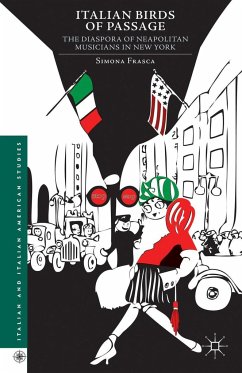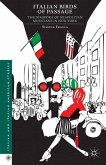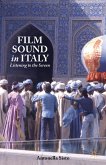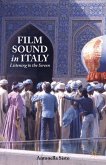This book reviews the period from the unification of Italy to the fascist era through significant Neapolitan performers such as Gilda Mignonette and Enrico Caruso. It traces the transformation of a popular tradition written in dialect into a popular tradition, written in Italian, that contributed to the production of "American" identity.
"Frasca combines all her talents in this thorough history and criticism of the role the Neapolitan song has played in shaping Italian and American cultures. She has done some great work digging up the facts and stories behind the songs we all know and love. But more than reveal the lives of those who composed, performed, produced and distributed such classics as 'O Sole Mio' and 'Core 'ngrato,' Frasca provides keen interpretations of the music's form and content. Illustrated with period photos, historical portraits, lyrics, playbills and posters, Birds of Passage, brings new insights of the Neapolitan song and will no doubt be the basis for future studies and analyses of this phenomenon." - Fred L. Gardaphé, Distinguished Professor of Italian American Studies, Queens College, CUNY, USA
'In this fascinating study of the transatlantic migration of Neapolitan song moving back and forth between Naples and New York in the early part of the twentieth century we hear histories and cultures sustained in sound. In a Neapolitan voice in lower Manhattan, in a tune sustained in a transatlantic passage, we catch the complex and popular fashioning of modern metropolitan life. Here music transports and translates seemingly separate historical and cultural localities into a shared and richly differentiated soundscape.' - Iain Chambers, Professor of Cultural, Postcolonial, and Mediterranean Studies, University of Naples, 'L'Orientale", Italy, and author of Migrancy, Culture, Identity (1994) and Mediterranean Crossings: The Politics of an Interrupted Modernity (2008)
'In this fascinating study of the transatlantic migration of Neapolitan song moving back and forth between Naples and New York in the early part of the twentieth century we hear histories and cultures sustained in sound. In a Neapolitan voice in lower Manhattan, in a tune sustained in a transatlantic passage, we catch the complex and popular fashioning of modern metropolitan life. Here music transports and translates seemingly separate historical and cultural localities into a shared and richly differentiated soundscape.' - Iain Chambers, Professor of Cultural, Postcolonial, and Mediterranean Studies, University of Naples, 'L'Orientale", Italy, and author of Migrancy, Culture, Identity (1994) and Mediterranean Crossings: The Politics of an Interrupted Modernity (2008)








